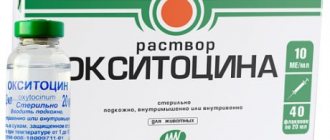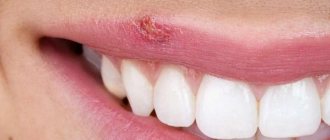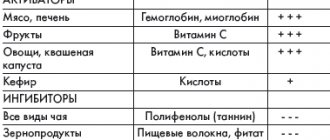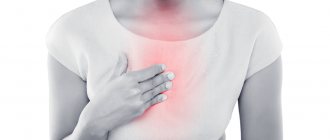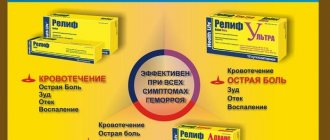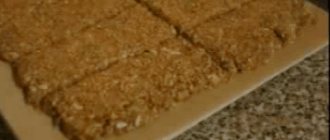At least one big feast in a series of New Year's holidays is already over, which means clients with a burning sensation in the esophagus have already made their way to the nearest pharmacy. Overeating and heavy doses of alcohol almost inevitably lead to problems with the gastrointestinal tract, even for those who do not normally suffer from this. Pharmacy workers who celebrate the holiday are required to dispense “something for heartburn.” How to answer the strangest or trickiest questions from clients about antacids? We offer you the following answer options.
Recommend me something for heartburn that will last longer.
Modern antacid drugs that are not absorbed in the digestive tract, such as aluminum phosphoric acid or aluminum-magnesium drugs, are suitable for you. They bind hydrochloric acid quite quickly - usually within a few minutes after ingestion - and their effect lasts up to several hours. Maximum duration of action
characteristic of drugs containing aluminum hydroxide. They act for 2.5–3 hours [2].
Required knowledge
Heartburn is a symptom subjectively perceived as a feeling of burning or warmth of varying intensity and duration, occurring behind the sternum and/or in the epigastric region, spreading upward from the xiphoid process. In the domestic epidemiological study "MEGRE" (2011), it was demonstrated that this symptom is detected in 47.5% of Russians. Heartburn can occur both on an empty stomach and after a heavy meal (after 20–30 minutes), after eating a large amount of sweet foods and hot spices. Smoking, fatty foods, coffee, carbonated drinks, chocolate, tomatoes, onions, garlic, citrus fruits, mint and alcohol can also trigger heartburn. Most often it appears in a horizontal position and during physical activity (lifting weights, bending the body forward), during pregnancy. Also, heartburn can be caused by taking certain medications - these are reflex expectorants, antibiotics, NSAIDs, calcium channel blockers, estrogens, antispasmodics, β-blockers, nitrates, anticholinergic drugs.
Heartburn is often associated with gastroesophageal reflux disease (GERD), which involves inflammatory changes in the lining of the esophagus, but can also occur in healthy people.
Symptoms of GERD:
- belching air or sour;
- lump in the throat;
- feeling of bitterness in the mouth;
- Heartburn is the most common symptom, occurring in 81% of GERD cases.
Despite the apparent “frivolity” of the symptoms of GERD, a long-term uncontrolled course of the disease can lead to complications such as:
- esophageal ulcers;
- bleeding - when blood vessels are damaged due to the formation of an esophageal ulcer;
- strictures (narrowing) of the esophagus;
- dysphagia (difficulty swallowing);
- pharyngeal reflux - a condition when acid from the stomach enters not only the esophagus, but also higher into the pharynx, and from there into the larynx, which is manifested by hoarseness;
- pneumonia and bronchitis - develop when pharyngeal reflux worsens and acid enters the respiratory tract;
- Barrett's esophagus is a precancerous condition of the esophagus;
- esophageal carcinoma.
In this regard, timely consultation of the patient with a doctor for a complete examination and diagnosis is especially important even with minimal manifestations of the disease.
The basis of treatment for GERD is lifestyle changes: normalizing body weight, quitting smoking, drinking alcohol, fatty foods, coffee, chocolate, and carbonated drinks. Food should be taken in small portions, dinner no later than 2-3 hours before bedtime, stress associated with increased intra-abdominal pressure, as well as wearing tight clothing should be avoided. The most commonly used medications are proton pump inhibitors, H2-histamine receptor blockers, prokinetics, antacids and, more recently, alginates.
It is important to note that almost all drugs intended to treat GERD, except antacids and alginates, are prescription drugs and are prescribed only by a doctor!
Give me heartburn medicine. And it would be desirable to also help with bloating - are there any such remedies?
Yes, today there are combination drugs that simultaneously neutralize hydrochloric acid and stop the manifestations of flatulence due to the inclusion of simethicone in the antifoam composition. It reduces the surface tension of gas bubbles in the digestive tract, promoting their rupture. An example of such a drug is a combination of aluminum, magnesium hydroxide and simethicone in the form of a suspension. It simultaneously neutralizes hydrochloric acid, reduces gas formation in the intestines, and also envelops the mucous membrane of the digestive tract, protecting it from the damaging effects of aggressive substances [5].
The role of the pharmacist
Unfortunately, in most cases of heartburn, the patient does not reach a doctor. When the first symptoms appear, people prefer to go to the pharmacy and pick up the drug there. Therefore, the pharmacist must know the features of all antacids, the rules for taking them and contraindications in order to give individual, competent advice to each buyer. In addition, the first-calculator needs to inform the client that timely consultation with a doctor in case of frequent heartburn is simply necessary! This will help identify the cause of the symptom, increase the likelihood of cure, and reduce the risk of developing serious complications such as Barrett's esophagus and esophageal cancer.
So, what are antacids and alginates and what place do they occupy in the treatment of acid-related diseases? Let's figure it out.
What is the difference between tablets and suspension from heartburn? Do they act differently?
The mechanism of action of a drug does not depend on the form (tablets, gel, suspension), but on its components. But the pharmacokinetic properties - the speed of onset of the effect, the duration of action - may differ between tablets and suspensions. It is believed that tablet forms maintain the acidity of gastric juice longer at a level of more than 4 ( acidity of gastric juice is considered normal in the range of 1.3–7.5 pH - editor's note.
) than suspensions. When chewable tablets for heartburn are taken correctly, acid-neutralizing components enter the digestive tract evenly, which has a positive effect on the result. At the same time, for heartburn, suspensions can begin to work faster than tablets [3]. In addition, they are optimally distributed over the surface of the mucous membrane, and in the lumen of the esophagus and stomach they form small drops with a large surface area, which enhances their medicinal properties [6].
And yet it cannot be said unequivocally that any form has an advantage. To draw such conclusions, you need to consider the properties of a particular drug.
Heartburn with gastritis: which doctor should I contact?
A gastroenterologist specializes in the treatment of gastrointestinal diseases. If additional research is necessary, other specialized specialists may be involved. For consultation, examination and treatment, please call +7 (495) 775-73-60 or leave a request for feedback on the website with your contact details. The clinic is located at: Moscow, 2nd Tverskoy-Yamskoy lane, building 10, Mayakovskaya metro station. The following stations are also within walking distance: Belorusskaya, Tverskaya, Novoslobodskaya and Chekhovskaya.
Methods for treating heartburn in children
Parents first of all think about what they can give their child for heartburn in order to quickly relieve the symptoms. However, therapy is more complicated. It includes taking medications, diet, and lifestyle changes.
Drug treatment
If the problem cannot be solved by diet and proper eating habits, the doctor may prescribe the following to the child:
- antacids – acid neutralizers;
- drugs that reduce the production of gastric juice;
- agents that stimulate the tone of the lower esophageal sphincter;
- Prokinetics – drugs to normalize the movement of food through the gastrointestinal tract.
Diet
The simplest home remedies are:
- to drink a lot of water;
- drink a glass of cold milk;
- eat cold food and even ice cream.
You need to eat fractionally - 4-5 times a day in small portions. From the child’s menu you need to exclude everything that provokes heartburn:
- fatty, fried, sour, smoked;
- sauces, hot seasonings;
- soda, strong tea and coffee;
- chocolate;
- tomatoes and citrus fruits;
- citrus fruit juices;
- onion;
- sour cream, cottage cheese;
- yeast baked goods.
The following will be useful: lean boiled meat, porridge, steamed vegetables, low-fat dairy products, bananas, apples, rice and oatmeal, potatoes, cabbage, fish and poultry, eggs, white bread, mineral water.
Food can be baked, boiled or steamed.
Some nutrition rules
- After feeding, the baby should be kept in an upright position for about 30 minutes.
- Leafy vegetables and milk help well.
- You need to eat often and in small portions.
- After eating, do not lie down for 30-45 minutes.
- Sleep on a high pillow.
- Don’t overeat, don’t eat in a hurry and “on the go.”
- Chew your food well.
Summary
Let us remind you once again that the pharmacist’s task is not only to select the most effective and safe drug (which our article will help with), but also to motivate the buyer to see a doctor for a detailed examination.
Sources
- Vakil N., van Zanten SV, Kahrilas P., Dent J., Jones R; Global Consensus Group. The Montreal definition and classification of gastroesophageal reflux disease: a global evidence-based consensus. Am J Gastroenterol. 2006 Aug.
- Maev I.V., Samsonov A.A., Bely P.A., Lebedeva E.G. GERD is the leader of acid-dependent pathology of the gastrointestinal tract // Appendix Consilium Medicum. Gastroenterology. No. 1. 2012. pp. 18–24.
- Minushkin O. N., Elizavetina G. A. Antacids in modern therapy of acid-related diseases // Gastroenterology of St. Petersburg. — 2010. — No. 2–3
- Yanova O. Modern understanding of the pathophysiological aspects of GERD and approaches to its pharmacotherapy // Doctor. 2013. No. 3.
- Bordin D.S., Masharova A.A., Kozhurina T.S. Treatment of gastroesophageal reflux disease with alginates // Treating Doctor. 2008.
- Lazebnik L. B., Masharova A. A., Bordin D. S. et al. Results of the multicenter study “Epidemiology of Gastroesophageal Reflux Disease in Russia” (“MEGRE”). Therapeutic archive. 2011.
- Isakov V. A. Analysis of the prevalence of heartburn: a national epidemiological study of the adult urban population (ARIADNA). Experimental clinical gastroenterology. 20089. Global Consensus Group. The Montreal definition and classification of gastroesophageal reflux disease. 2006.
Algorithm and questions
So, what questions should a buyer ask in order to correctly select a heartburn medication at a pharmacy or send it to a therapist on time?
- Are there any “worrying” complaints?
- abdominal pain (of any nature);
nausea, vomiting, obsessive belching;
- temperature increase;
- bloating, delayed gases;
- weakness;
- impurities of blood and/or mucus in the stool, traces of blood on toilet paper;
- black, tarry stool;
- constipation followed by loose stools;
- any sudden changes in bowel habits;
- sudden weight loss.
- Is heartburn new or recurring?
- If heartburn occurs for the first time, then we can recommend absorbable antacids (for example, calcium carbonate + magnesium carbonate) or non-absorbable 1st generation, which will help relieve unpleasant symptoms one-time.
If heartburn occurs not for the first time and the buyer has previously, according to him, already had some gastroenterological diseases, then preference should be given to non-absorbable antacids of the 2nd generation or alginates.
- How often do you experience heartburn?
- If episodes of heartburn occur once a week or less, then such a buyer should be recommended combined non-absorbable antacids of the 2nd generation * as the most effective (aluminum hydroxide + magnesium hydroxide) for use on an “on demand” basis.
If episodes of heartburn occur more often than twice a week, then it is advisable for such a buyer to be advised to undergo a medical examination, since in this case it may be necessary to regularly take other groups of drugs (proton pump inhibitors, prokinetics, H2-histamine receptor blockers), which only a doctor will prescribe .
- Is the patient taking other medications?
- expectorants of reflex action;
antibiotics;
- NSAIDs;
- calcium channel blockers;
- estrogens;
- antispasmodics;
- β-blockers;
- nitrates;
- anticholinergic drugs.
- Is the woman pregnant or not?
- If heartburn is episodic (1-2 times a week or less), we recommend absorbable antacids (calcium carbonate + magnesium carbonate) once to quickly relieve symptoms.
If heartburn is systematic and causes severe discomfort, then preference should be given to alginates, as the safest means during pregnancy.
- Buyer's age?
In the group of elderly patients and children over 12 years of age, the safest use of alginates is to relieve heartburn, since they act quickly and do not have systemic effects. The use of absorbable and aluminum-containing antacids in elderly patients is undesirable due to possible side effects.
- Do you have a history of any inflammatory diseases of the gastrointestinal tract (gastritis, duodenitis, gastric or duodenal ulcers)?
- If the patient has not previously been seen by a gastroenterologist and has not taken antacids, then to start therapy, it is optimal to prescribe second-generation non-absorbable antacids.
If the buyer remembers that he was once registered with a gastroenterologist and underwent treatment, then the choice should be made on alginates, as they are the safest in this situation. Such a buyer should definitely be advised to consult a doctor so as not to miss an exacerbation or progression of the disease.
- Are you allergic to aluminum or magnesium?
An affirmative answer means refusing drugs with these components. Alginates will be a win-win option for such clients, as well as for those who doubt the answer.
Dear pharmacists, remember, if “habitual” heartburn is accompanied by at least one of the symptoms described above, this is a reason to immediately refer the buyer to a doctor. Delay in this case can be life-threatening!
In both cases, it is necessary to draw the buyer’s attention to the fact that long-term uncontrolled use of the drug is not safe and for optimal selection of the drug, it is necessary to consult a doctor.
All of these drugs can cause heartburn. In this case, we can recommend periodic use of antacids “on demand”, absorbable or non-absorbable, 1st generation.
The use of aluminum-containing drugs during pregnancy and lactation is strictly contraindicated!
What is the danger of the disease without treatment - the main complications
The main danger is the disease that caused heartburn. He definitely needs to be found and cured. And reflux itself is dangerous, since with prolonged exposure to acid on the esophagus, esophagitis, an inflammatory disease, can develop. A chronic inflammatory process can cause mucosal degeneration and cancer.
Erosion and peptic ulcers may form, which lead to bleeding. In some cases, narrowing of the esophagus (scar strictures) appears, which does not allow food to be taken normally - it is difficult to swallow.

